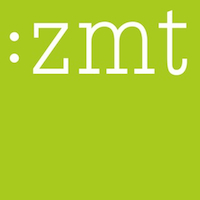Translation program that can help prevent omissions 论题张贴者: mcym
|
|---|
mcym
菲律宾
Local time: 21:41
English英语译成Tagalog他加禄语
+ ...
Hello!
Sometimes, phrases are overlooked during translation. In your experience, which program can help prevent this from happening?
[Edited at 2023-07-17 15:14 GMT]
| | | | Lieven Malaise
比利时
Local time: 14:41
正式会员 (自2020)
French法语译成Dutch荷兰语
+ ...
In this case the best app is a human being specialised in translation/editing.
| | | | Mr. Satan (X)
English英语译成Indonesian印度尼西亚语
Don't most translation software have some sort of QA tools?
| | | | | Xbench 2.9 for QA | Jul 18, 2023 |
Among the freely available QA tools, I know and extensively use good old Xbench.
The "drawback": it needs files in bilingual format.
2.9 is here https://www.xbench.net/index.php/download
| | |
|
|
|
Lingua 5B 
波斯尼亚黑塞哥维纳
Local time: 14:41
正式会员 (自2009)
English英语译成Croatian克罗地亚语
+ ...
| What type of omissions? | Jul 18, 2023 |
Trados QA review function can help.
| | | | Emanuele Vacca 
意大利
Local time: 14:41
正式会员 (自2020)
English英语译成Italian意大利语
| I don't think such a program exists | Jul 18, 2023 |
In my experience, QA tools (including those within CAT tools) can only detect whether you missed an entire segment. I don't think they can determine whether you missed a single word or phrase. Determining that would require some kind of comparison between the source text and the target text involving machine translation.
| | | | | I often omit waffle and redundant words | Jul 18, 2023 |
You would need software intelligent enough to understand that not every omission is an error but can also be an improvement.
Example:
Original source: 'Please wait until the file deletion procedure has been completed.'
What I translate: 'Please wait until the file has been deleted.'
Expressions such as 'Please note that' add no useful information and unless they are required for politeness, I cull them.
| | | | Lingua 5B 
波斯尼亚黑塞哥维纳
Local time: 14:41
正式会员 (自2009)
English英语译成Croatian克罗地亚语
+ ...
| Names, numbers, titles, etc. | Jul 18, 2023 |
Emanuele Vacca wrote:
In my experience, QA tools (including those within CAT tools) can only detect whether you missed an entire segment. I don't think they can determine whether you missed a single word or phrase. Determining that would require some kind of comparison between the source text and the target text involving machine translation.
They do compare names, numbers, etc. and other factual information. Not sure about other type of omissions, sometimes they do that too.
| | |
|
|
|
Zea_Mays 
意大利
Local time: 14:41
正式会员 (自2009)
English英语译成German德语
+ ...
Smartling warns you before saving when the target string is much longer or shorter than the source string, or during QA when glossary terms are missing from the target.
Phrase (formerly Memsource) warns you if a number or glossary term is missing, as do other tools.
| | | |
Zea_Mays wrote:
Phrase (formerly Memsource) warns you if a number or glossary term is missing, as do other tools.
Yes and no. In languages that use compound nouns written in one word, Memsource and other QA tools are unable to figure out that the term is indeed there in a compound noun, so we get a flood of false positives in these languages, typically Germanic.
Such QA tools also don't recognise inflections of the terms.
It's all a very primitive check.
| | | | Luca Tutino 
意大利
正式会员 (自2002)
English英语译成Italian意大利语
+ ...
| Partial automated support only: CAT tool segmentation and Apsic Xbench | Jul 19, 2023 |
For me, the best sw antidote against the omission of entire phrases is CAT tool segmentation. But human review, checking, and reading (aloud) remain essential.
Thomas T. Frost wrote:
Zea_Mays wrote:
Phrase (formerly Memsource) warns you if a number or glossary term is missing, as do other tools.
Yes and no. In languages that use compound nouns written in one word, Memsource and other QA tools are unable to figure out that the term is indeed there in a compound noun, so we get a flood of false positives in these languages, typically Germanic.
Such QA tools also don't recognise inflections of the terms.
It's all a very primitive check.
True. Flection and accordance also create problems. Many tools tried to address this with little to show for it. Often fixing it requires more additional reviewer effort than a plain review.
The best automation tool for me remains Apsic Xbench (v 2.9 and up) which, in combination with regex, can be used in ways offering some support for omissions.
| | | | | It's bad with numbers too | Jul 20, 2023 |
Thomas T. Frost wrote:
Yes and no. In languages that use compound nouns written in one word, Memsource and other QA tools are unable to figure out that the term is indeed there in a compound noun, so we get a flood of false positives in these languages, typically Germanic.
It also can't detect when a number has been spelled out or rendered differently. E.g. 1 -> one, or 1月 -> January so you have to spend a lot of time ignoring such flags during QA.
| | | | To report site rules violations or get help, contact a site moderator: You can also contact site staff by submitting a support request » Translation program that can help prevent omissions | Pastey | Your smart companion app
Pastey is an innovative desktop application that bridges the gap between human expertise and artificial intelligence. With intuitive keyboard shortcuts, Pastey transforms your source text into AI-powered draft translations.
Find out more » |
| | Protemos translation business management system | Create your account in minutes, and start working! 3-month trial for agencies, and free for freelancers!
The system lets you keep client/vendor database, with contacts and rates, manage projects and assign jobs to vendors, issue invoices, track payments, store and manage project files, generate business reports on turnover profit per client/manager etc.
More info » |
|
| | | | X Sign in to your ProZ.com account... | | | | | |



























